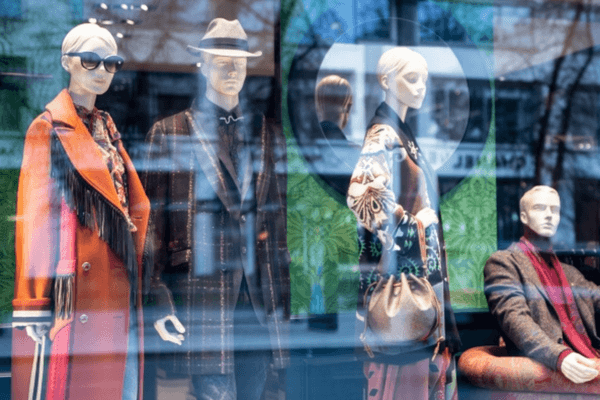
If, in 2022, we are already seeing a strong return of consumers to physical shops, the truth is that the preference for online shopping is here to stay, forcing businesses to try to combine the online channel with the physical sales channel in order to offer a more complete and satisfying shopping experience that will retain and attract more consumers.
Main trends in the retail sector in 2023
This is just one of main trends in the national retail sector which will develop over the course of the year that has just begun, but there's more, as we'll see below.
Omnichannel: unified online and physical experience
As we have mentioned, as a result of the pandemic, many consumers have become accustomed to and even prefer to do their shopping online. With the end of the restrictions, people returned to physical shops, but the habit and comfort of shopping through the online channel remained.
Faced with this "mixed" consumer behaviour, the trend, which has already been emerging more frequently in recent years, is for the offering a unified experience to consumers, i.e. the integration and interconnection, within the same company, of an online and physical sales channel.
This trend towards "unified retail" ends up bringing a number of advantages to businesses, including the possibility of obtaining more reliable data on customers' purchasing and payment habits through the online channel and use them in the physical shop to provide a more personalised shopping experience in line with consumers' real needs.
In addition, the retail business can allow a customer to buy online and pick up what they have bought in a physical shop, or to check on the website whether a certain product is available in a physical shop.
Digital integration in face-to-face payments
According to the report REDUNIQ Insights for the first half of 2022, the contactless payments in Portugal accounted for 55% of total business turnover connected to the REDUNIQ system, 9% more than in 2021 and 30% more than in 2020.
This growth and contribution from contactless payments for the turnover of businesses in the Retail sector in Portugal is based on a profound change in the consumption habits of the Portuguese which is underlined by the figures for transactions using this technology which, at the end of June last year, accounted for 74% of the total transactions carried out in the period under review, 9% more than in 2021 and 22% more than in 2020.
Allied to this data, it is also important to mention the conclusions of a recent study carried out by the European Central Bank, which tells us that the Portuguese are gradually stop using coins and notes to pay for your purchases in person and preferring to pay by card and smartphone, through digital wallets such as MB Way, Apple Pay or Google Pay, for example, the latter being an increasingly visible phenomenon among the younger generations.
This will be a trend that all studies say will continue and even deepen in 2023, leading Portuguese retailers to consider the introduction of payment methods for the retail sectorIn addition to offering customers a wider range of choices, digital integration also allows them to be more mobile and manage their finances more efficiently.
In response to this new trend, REDUNIQ has developed payment solutions for retail aligned with new management and payment trends, as is the case with the REDUNIQ Smart.
In addition to accepting payments with Apple Pay, contactless with card, chip or MB Way, Google Pay and Apple Pay, this TPA Android incorporates a set of management apps that help businesses to sell more and allow them to be totally mobile and digital.
This is the case with the ZS Mobile app, which allows a logistician to register orders on the terminal, invoice (AT certification) or draw up quotes and orders even without an Internet connection.
These are just some of the advantages that this innovative payment terminal brings to the national retail sectorbut there's more:
- Possibility of accepting payments from customers all over the world, by card or smartphone, with Contactless, chip, MB Way, Apple Pay or Google Pay;
- Registering orders, invoicing or preparing quotes and orders on the terminal even without an Internet connection;
- Access to apps with management software, easily integrated into the terminal;
- It makes business more mobile and digital, since the entire purchasing process, from stock management to payment, takes place on the same terminal;
- Online, real-time management of back-office, purchasing and supplier systems, allowing you to monitor and manage your business more efficiently.
- Easy payments for customers, as there is no need to enter a personal code for payments up to €50. When it comes to larger amounts, the process is extremely fast, all you have to do is enter the code and confirm the operation;
- Simple payments for companies (payments are transferred electronically to the company account);
- Greater efficiency in receiving payments, as you avoid cheques with false signatures or without proof;
- Smooth transactions with account credit on the next working day;
- Greater security, with less cash on hand;
- More simplicity, with fewer bank deposits made and change in hand.
Phygital: hybrid shopping experience
Phygital may still be a relatively unknown concept for national retailers, but it is already being recognised as one of the major trends for retail in 2023.
In practice, the Phygital corresponds to a hybrid shopping experience that is umbilically linked to omnichannel since it's up to the customer to decide how and where the various stages of the purchase take place.
This means that, in Phygital, the customer you can buy and pay online and pick up your parcel in the shop, or send it directly to your home, as well as making returns and changes to a product purchased online in a physical shop.
In addition to all the technology and intercommunication between the online and physical channels, starting with the payment solutions that it makes available to the customer, which a retail business must imprint on its operations, for a more complete and personalised shopping experience, retailers must concern themselves with improve its customer service by offering augmented virtual reality and artificial intelligence solutions.


